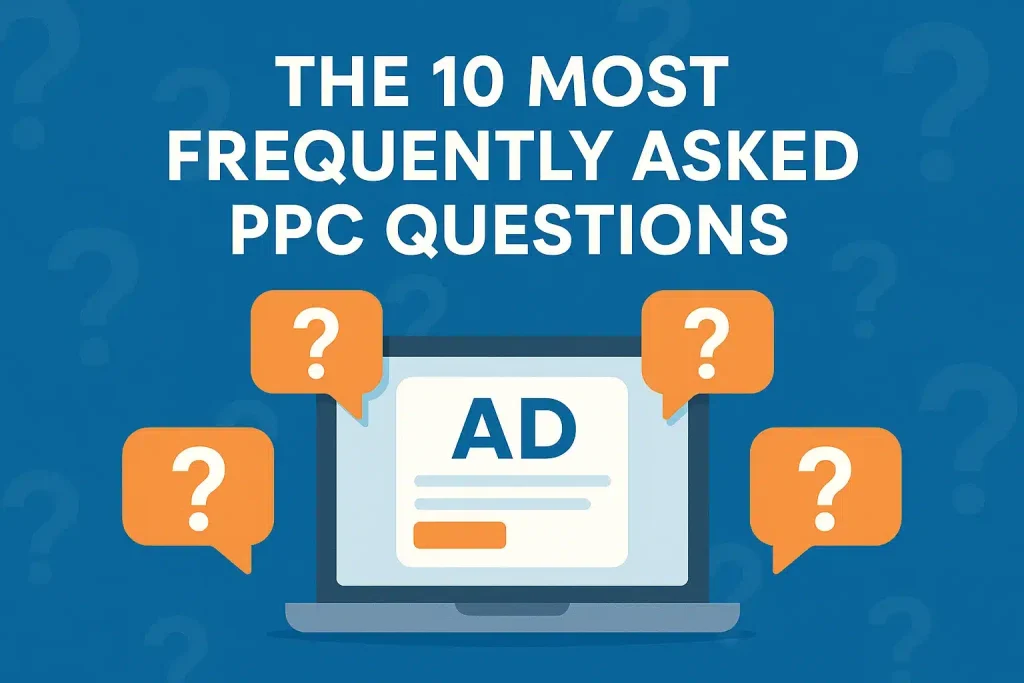PPC advertising is one of the fastest-moving areas in digital marketing. With platform changes, smarter bidding strategies and increasing competition across search engines, business owners are asking more questions than ever. Whether you’re building your first PPC campaign or trying to reduce wasted ad spend, getting solid answers can make all the difference.
In 2025, many marketers are using AI tools like ChatGPT to troubleshoot issues and plan strategies. This blog brings together the 10 most frequently asked PPC questions, so you can understand what matter and start improving your results straight away.
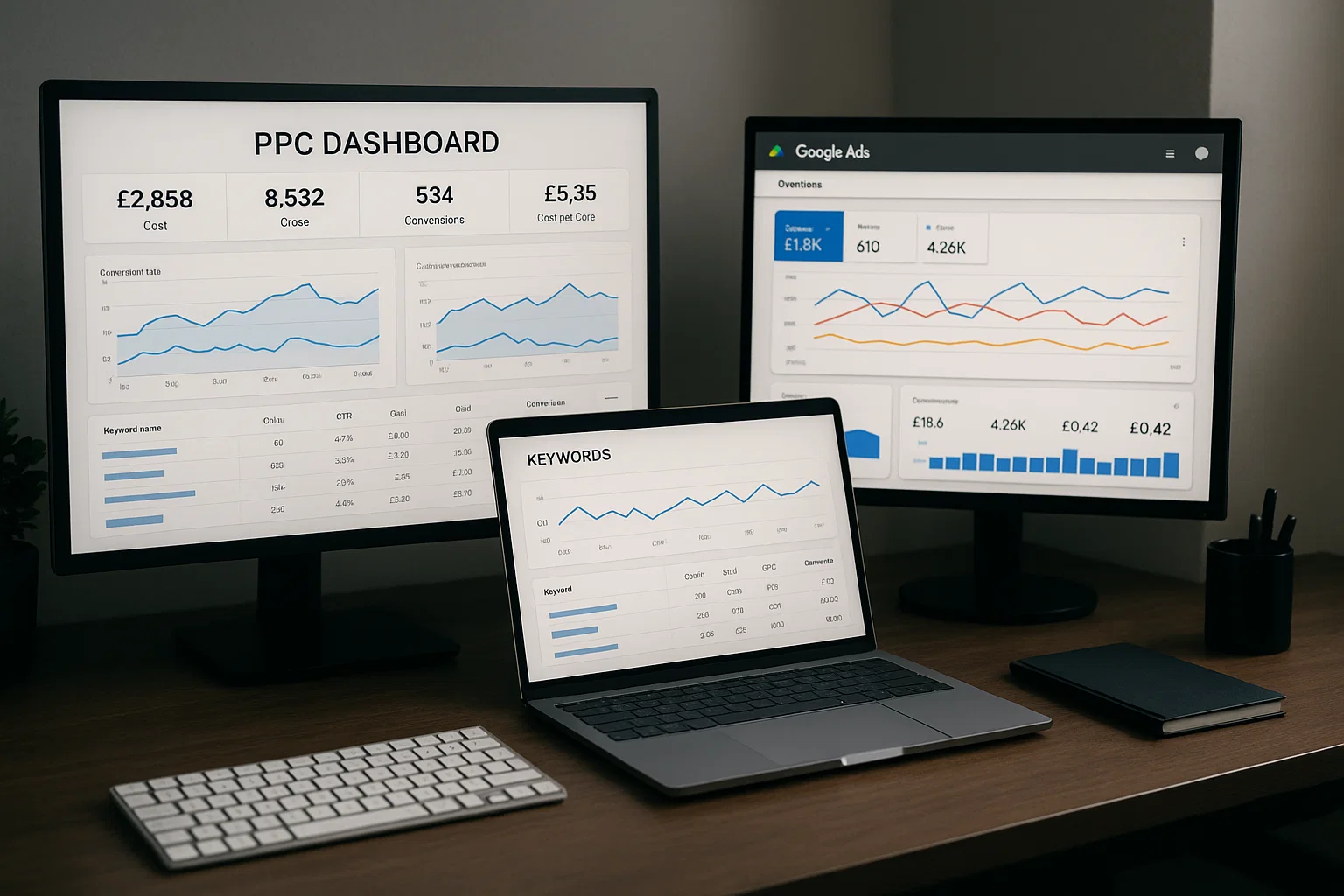
1. What Exactly Is PPC and How Does It Work?
PPC, short for pay-per-click, is a model of online advertising where advertisers pay a fee each time someone clicks their ad. It’s most commonly associated with search engines like Google or Bing, where ads appear alongside search results when people look for specific terms. Each click is a cost, but if the campaign is well-run, it can quickly generate traffic and conversions. For a full walkthrough of how to set up campaigns, manage budgets and track performance, see our guide to Google Ads in 2025
Platforms like Google Ads and Microsoft Advertising operate using auctions. You choose your keywords, set your bid, and create your ad. When someone searches for that keyword, your ad might appear. If it gets clicked, you’re charged. The idea is simple, but running successful PPC campaigns takes skill, strategy and ongoing optimisation.
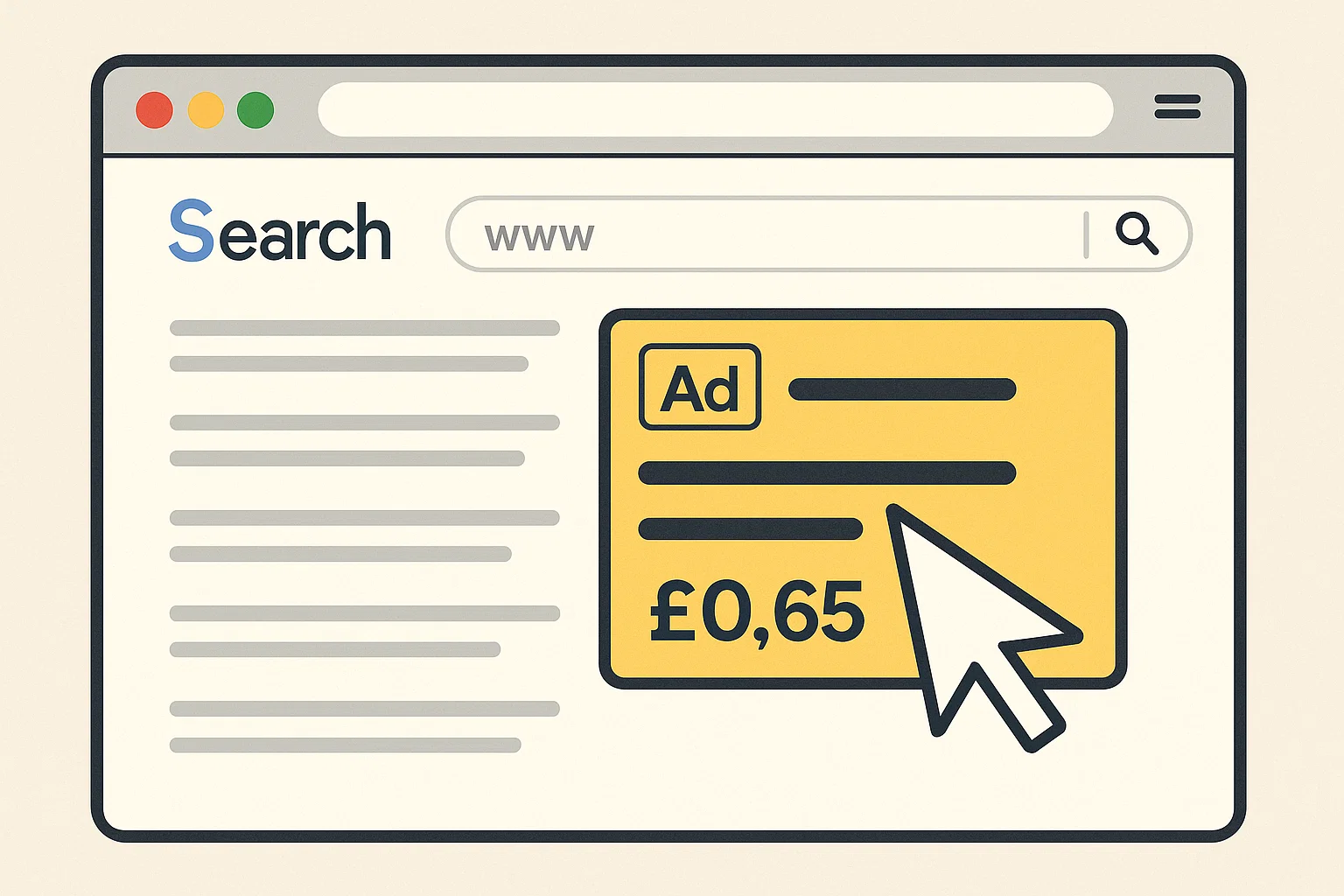
2. What Is Quality Score and Why Does It Matter?
Google’s Quality Score is a diagnostic tool that rates your keywords and PPC ads out of 10. It’s calculated based on expected click-through rate, ad relevance and landing page experience. A high score usually leads to lower costs and better positions on the search engine results page.
Many advertisers try to improve their Quality Score by rewriting PPC ad copy, refining keyword lists and sending users to more relevant landing pages. It’s not just about performance, it directly impacts your cost per click and overall budget efficiency. For Google Ads success, keeping an eye on Quality Score is essential.
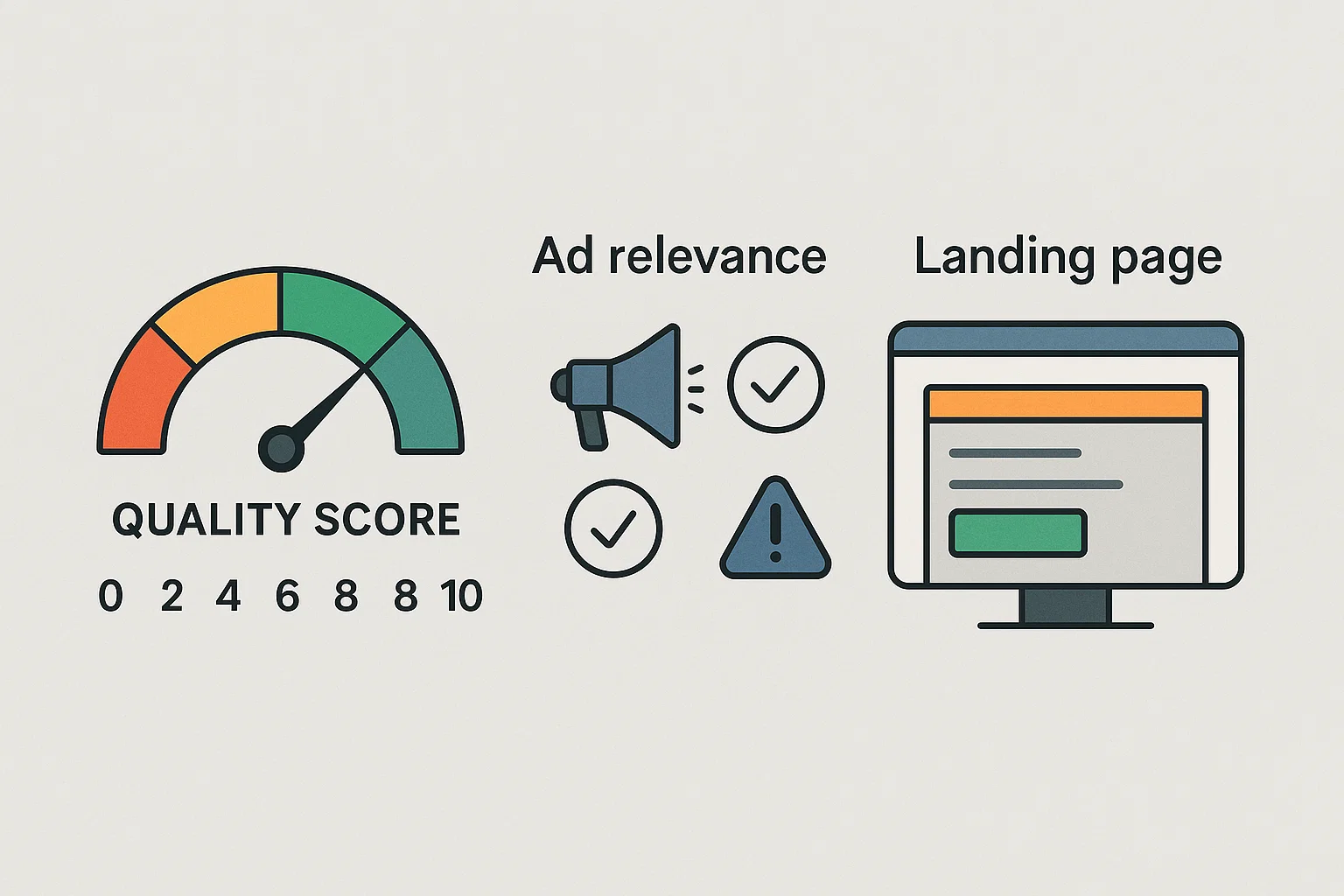
3. How Should I Structure My Campaigns and Ad Groups?
Organising your PPC campaigns properly makes a huge difference in performance. Each campaign should be focused on a broad goal such as product type, location, or customer intent. Within that campaign, ad groups are used to house sets of related keywords.
Well-structured ad groups allow you to create highly relevant PPC ads, which match both the searcher’s intent and the landing page content. This structure improves your Quality Score, gives you better control over budget and makes it much easier to measure what’s working.

4. How Many Ad Variations Should I Use (and How Long Should I Test)?
Ad testing is one of the most effective ways to improve PPC advertising. The goal is to find out which headlines, descriptions and calls-to-action work best for your audience. Running three to five ad variations within each ad group is a good starting point.
You should test your PPC ads until each has received at least 1,000 impressions or enough clicks (usually 100–200) to draw a conclusion. Pause what doesn’t work and build on what does. Whether you’re using Google Ads or Bing, ad testing should be a constant part of your routine.
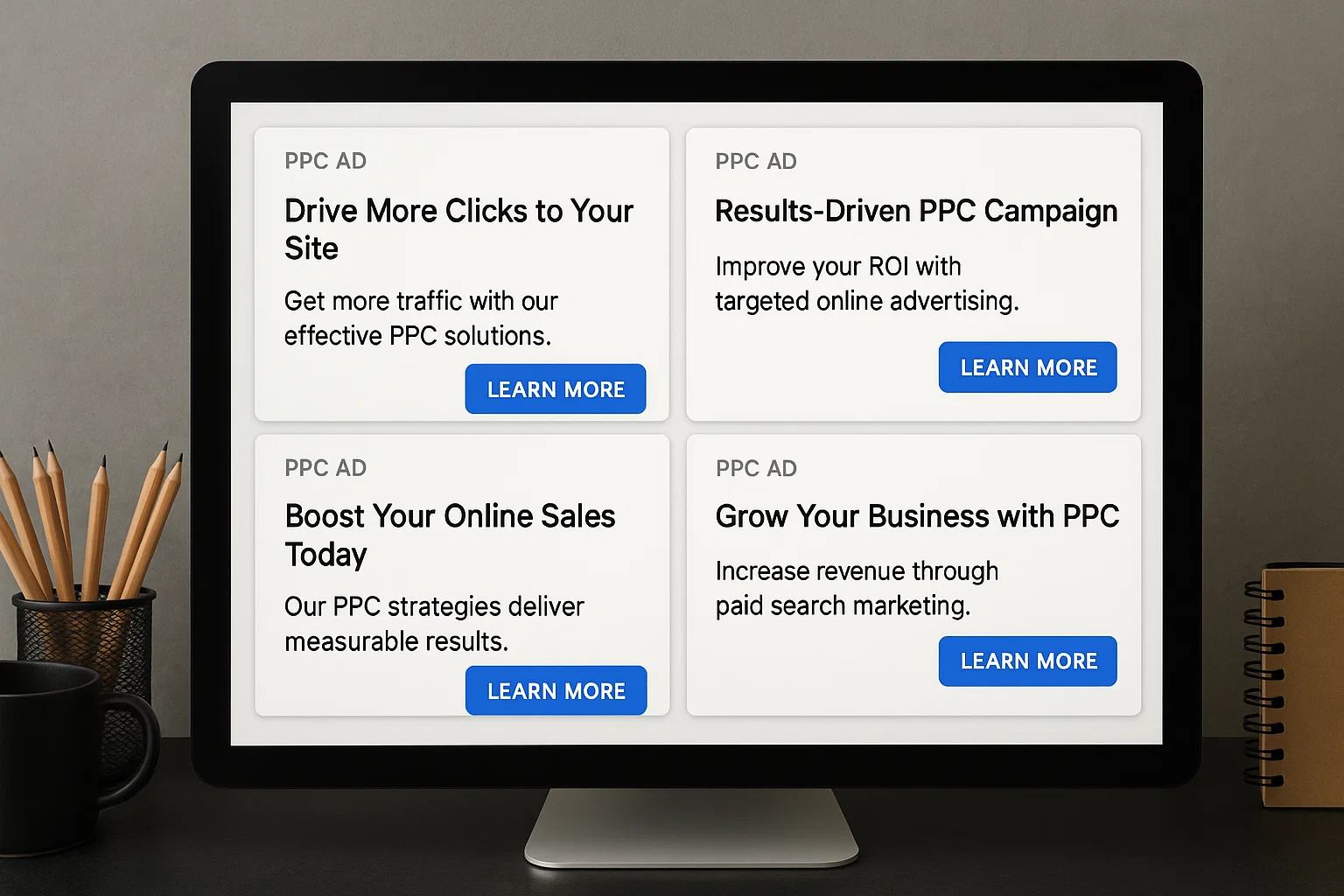
5. Which Metrics Actually Matter?
Metrics are everywhere in PPC campaigns, but not all of them are useful. Click-through rate and cost per click can give you surface-level performance insight, but they don’t tell you whether your ads are making money.
Instead, focus on conversion rate, return on ad spend (ROAS) and cost per conversion. These tell you whether your PPC advertising is actually profitable. Platforms like Google Ads make it easy to track these figures if your conversion tracking is properly set up.
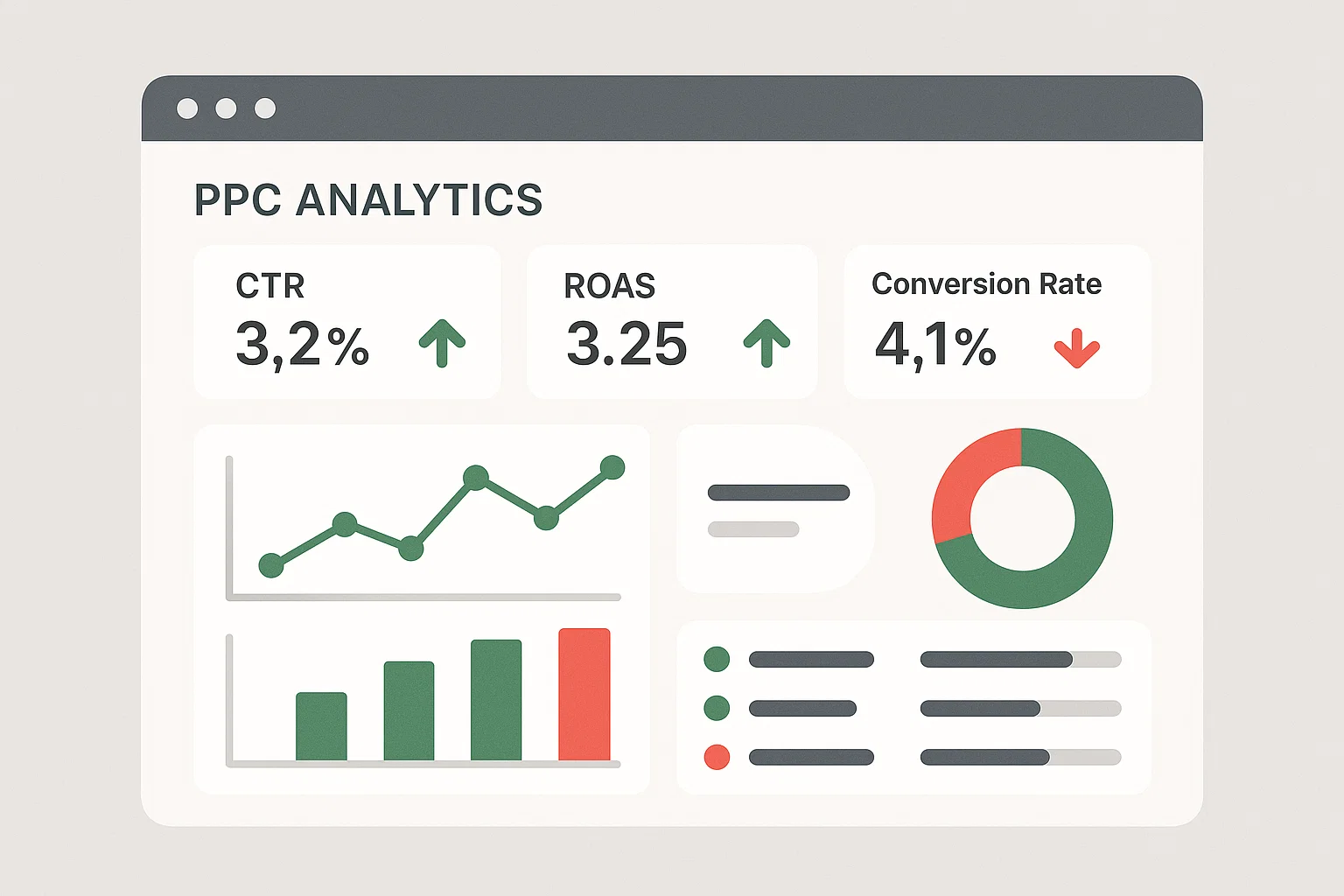
6. How Do I Do Keyword Research and Group Keywords Effectively?
Keyword research is still the backbone of any successful PPC campaign. Start by listing phrases your customers might use, then expand with tools like Google Keyword Planner, Ahrefs, or SEMrush. It’s important to consider search volume, competition and cost per click.
Once you’ve gathered a list organise your keywords by intent, group transactional terms separately from informational ones. Structure your ad groups so that each set of keywords matches a specific type of PPC ad. This way, your ads stay relevant and your Quality Score improves.
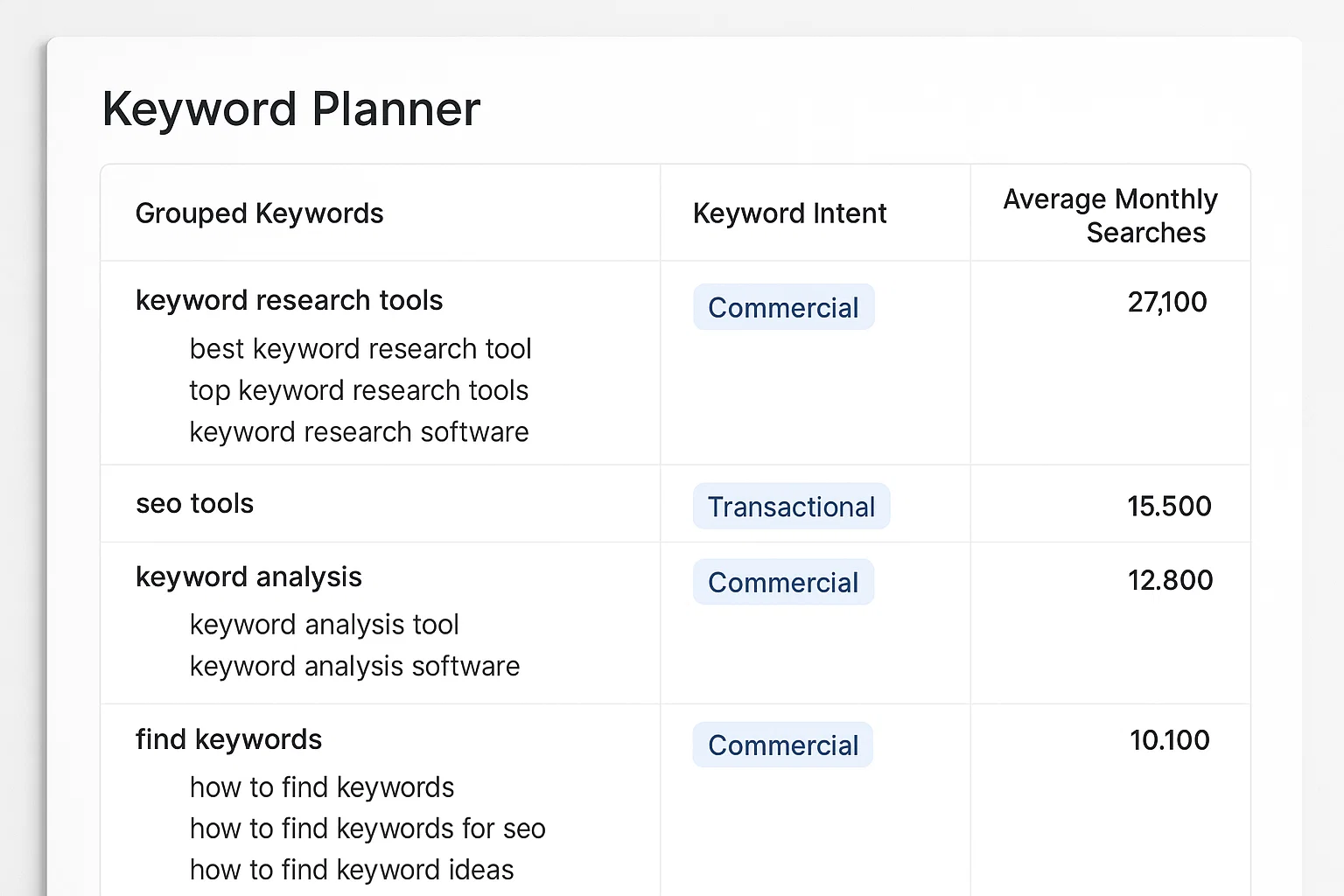
7. Which Bidding Strategies Are Best Right Now?
The big debate in PPC advertising is whether to use manual or automated bidding. Manual bidding gives you control but requires constant oversight. Automated bidding strategies like Target CPA or Target ROAS use machine learning to adjust bids based on real-time signals.
If you’re running Google Ads campaigns with a decent amount of conversion data, smart bidding usually performs better in the long run. Just remember to give the algorithm time to learn, don’t keep changing the goalposts too quickly.

8. Should I Advertise on More Than Just Google?
Google Ads isn’t the only game in town. Depending on your audience, Bing Ads (Microsoft Advertising) can be an excellent alternative, often with cheaper clicks and less competition. Social platforms like Facebook, LinkedIn and TikTok are also useful for raising awareness and retargeting.
Expanding beyond Google lets you diversify your PPC marketing and connect with users who might not be active on one particular platform. Multi-channel advertising helps you stay visible throughout the buyer journey, not just at the bottom of the funnel. If you’re weighing up whether SEO or PPC should take priority for your next campaign, our Manchester-based comparison of SEO vs PPC explores which delivers better local results.
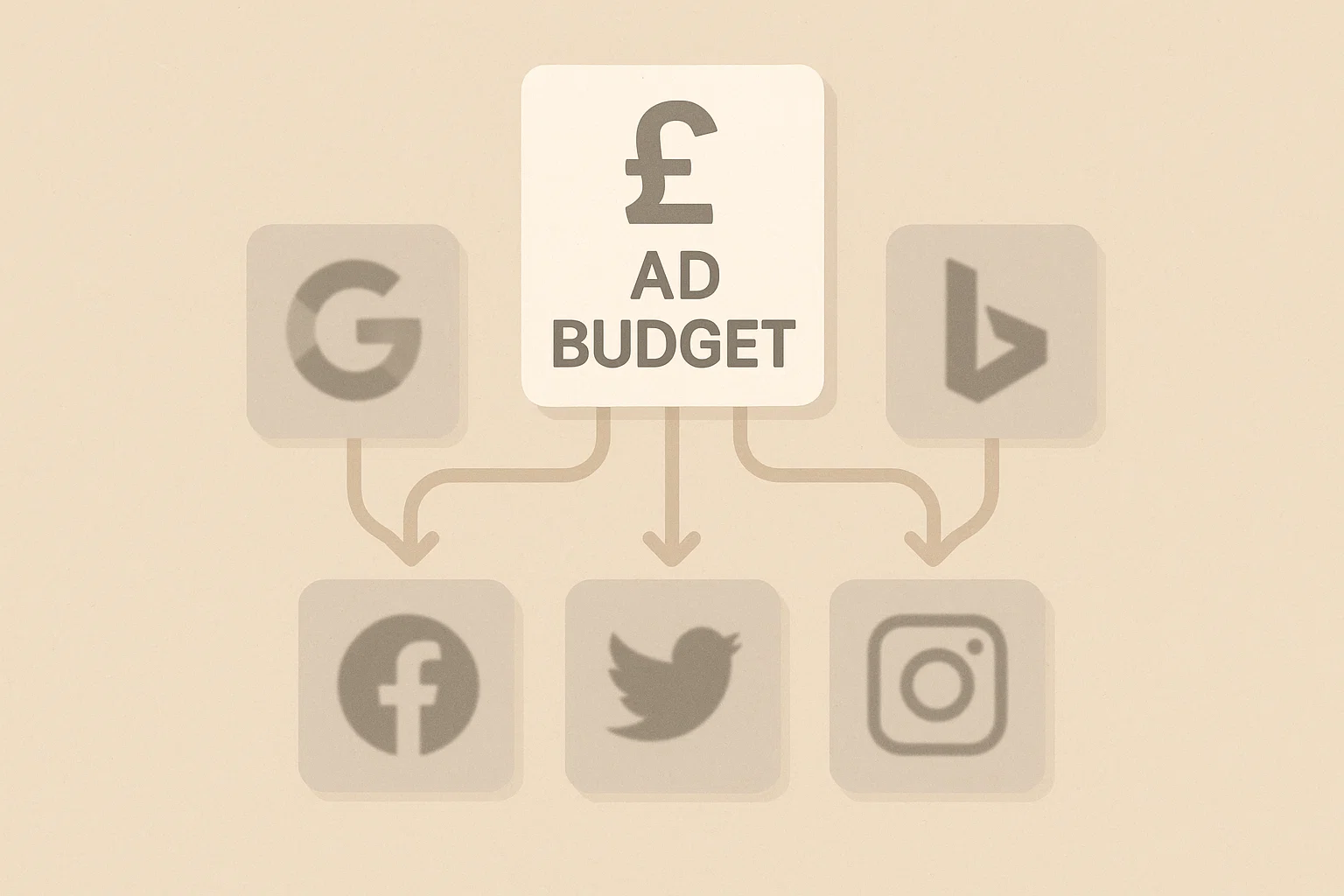
9. How Do I Optimise My Landing Pages for Better Conversions?
Even the best PPC ad will struggle to convert if the landing page doesn’t follow through. Slow loading times, unclear messaging and poor mobile design can all cause users to bounce.
Make sure your landing page loads fast, delivers on the ad’s promise and includes a clear call to action. Use tools like Hotjar and Google Analytics to see where users drop off. For serious PPC advertisers, the landing page is just as important as the ad itself.
For more help on this check out https://support.google.com/google-ads/

10. How Does Data Privacy Affect PPC in 2025?
As third-party cookies fade out, PPC advertising is relying more on first-party data. This includes data from your CRM, email list, or previous site visitors. Google’s Enhanced Conversions and Customer Match features are helping advertisers use this data without violating privacy laws.
At the same time, contextual targeting is becoming more relevant. That means placing your PPC ads based on the content of the page rather than user history. If your strategy still depends on cookie tracking alone, it’s time to update it.
What to Do Next
From building stronger PPC campaigns to improving your Google Ads strategy, these frequently asked questions reflect exactly what business owners and marketers want to know. Whether you’re creating better ad groups, refining your PPC ads, or adjusting your ad spend, the goal is always the same – better results, lower costs and more control.
If you’re stuck or unsure what to do next, check out our blog Should You Hire A PPC Agency? and then speak to our specialist team who understand how to make search engines and AI tools work together. PPC is changing fast, but with the right answers, Rank Kings will help you stay ahead of the curve.
